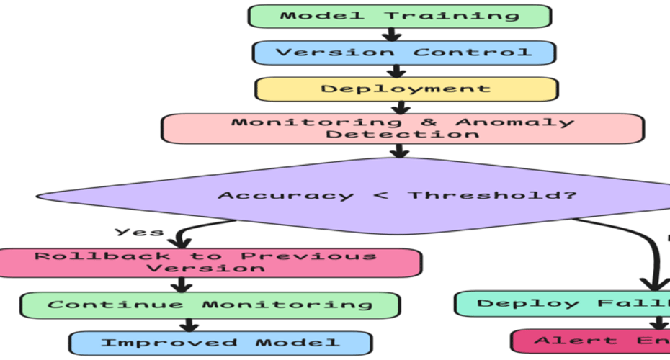Dev
2w
108

Image Credit: Dev
Future AI Deployment: Automating Full Lifecycle Management with Rollback Strategies and Cloud Migration
- As AI adoption rises, organizations seek efficient deployment, management, and scaling strategies for AI models, including AI observability for performance tracking.
- A comprehensive AI-powered workflow with rollback integration ensures seamless deployment and proactive issue management.
- The lifecycle includes model training, automated deployment with rollback support, proactive monitoring, anomaly detection, intelligent rollback strategy, and continuous improvement pipelines.
- Different AI model types like Generative AI, Deep Learning, Traditional ML, and Reinforcement Learning pose unique challenges in deployment.
- Strategies vary from implementing prompt engineering for Generative AI to checkpoint-based rollbacks for Deep Learning models.
- Robust rollback processes involving fallback models, AI-driven triggers, and Kubernetes integration ensure stability during performance degradation.
- Peak traffic readiness requires load testing, circuit breakers, chaos engineering, and caching strategies for improved system resilience.
- Cloud migration strategies emphasize data synchronization, hybrid cloud approaches, migration rollback plans, data security, and cloud-specific model optimizations.
- Tools like Azure Migrate, AWS Application Migration Service, and Google Cloud Migrate facilitate seamless cloud migration planning and execution.
- By combining observability tools, intelligent rollback automation, and structured cloud migration, organizations can efficiently manage AI deployment lifecycles.
Read Full Article
6 Likes
For uninterrupted reading, download the app